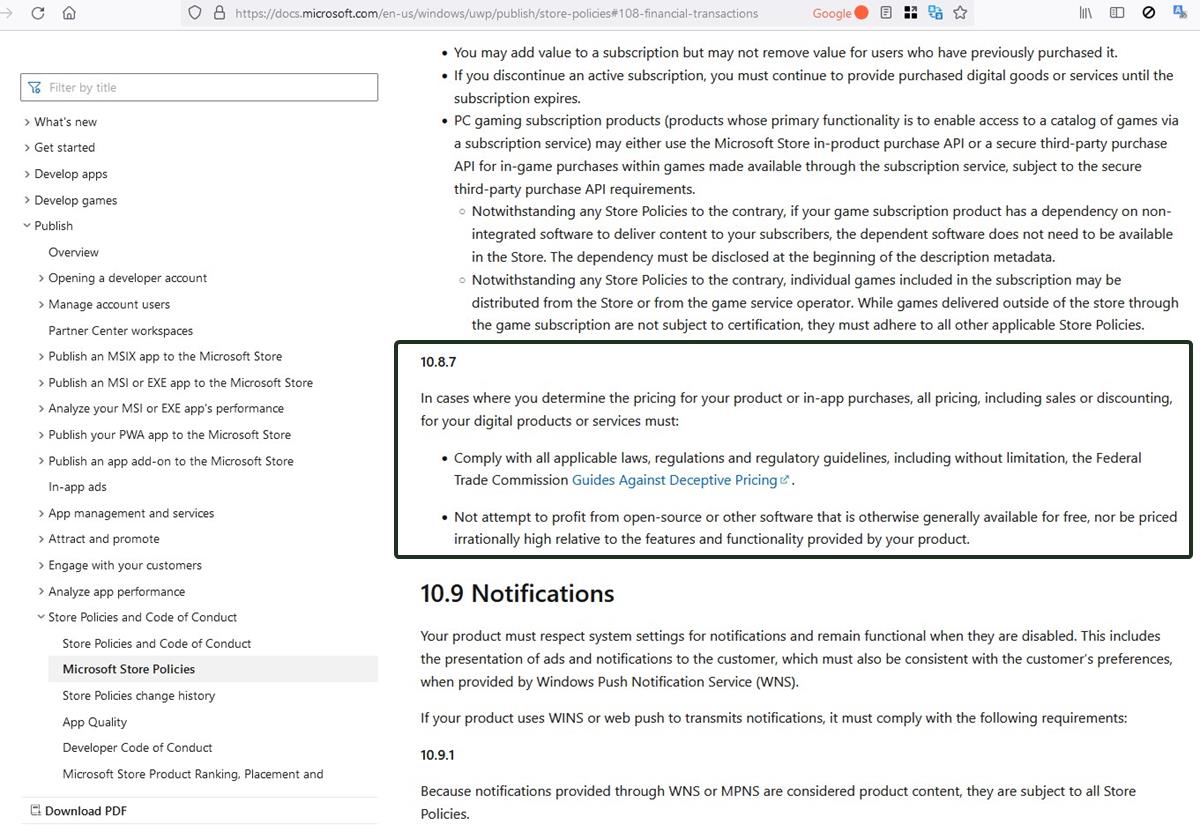A few days ago, Microsoft published an update to a policy, forbidding open source programs from being sold on the Microsoft Store. This didn't sit well with some developers, who caused an uproar on social media.

The issue actually began last month, Martin wrote about it here, highlighting some problems related to it. The Microsoft Store isn't exactly well-curated, we have seen some controversial stuff on it before. Legitimate open-source apps were rebranded by third-parties and sold on the marketplace. These copycats are literally stealing other people's work, it's a scam.
Can open source apps be sold?
The popular rater graphics editor, Paint.NET, is an open-source program. It is available for free from the official website. The Microsoft Store version of the app, on the other hand, is not free.
Before you raise a question asking if this is legal, yes it is. Let me explain. Just because an app has an open source license, doesn't necessarily mean that it has to be free, the developer can choose to sell their program, it depends on the open source license that they chose. A good example for this would be Robert Broglia's emulator apps on Android, they are paid apps (except for SNES 9X+), but the source code for his apps are available publicly, meaning anyone can compile them for free. Paying the one-time fee, provides a convenient way to get the apps and updates for them from the Google Play Store. It is compliant with the GPL.
But that is a rare case, it's up to the developers to decide whether their open source program should be free or paid. The majority of open source software are available for free, developers usually give users the option to donate money in order to support the project, cover the costs (electricity bills, internet bills, etc.). As for Paint.NET, the Microsoft Store version offers an alternative way for users to support the development, instead of donating money directly, you may buy the app to help the developers.
Banning copycat programs is undoubtedly a good move, but therein lies the problem, why is Microsoft banning genuine open source programs from being sold on the Microsoft Store? Hayden Barnes, Senior Engineering Manager at SUSE, pointed out that good programs like WinSCP, Krita benefit from sales on the Microsoft Store. It isn't fair to punish everyone just because some people committed fraud, is it? Is that what's happening? Well, apparently not.
Giorgio Sardo, Microsoft General Manager of apps, partners, and the Microsoft Store, responded to criticism from developers, confirming that the policy change was made to protect users from repackaged FOSS apps that were being sold on the storefront. He also clarified that Microsoft wants to support developers to distribute open source software via the Store. Sardo stated that the company is reviewing the policy to make the intent clear.
I think that is a fair decision, ban the fake apps, and allow the real ones. That is how the Microsoft Store should have been run in the first place, well I suppose it's better late than never.
Thank you for being a Ghacks reader. The post Microsoft Store will not ban legitimate paid open source programs appeared first on gHacks Technology News.


0 Commentaires